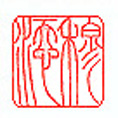— go to next extract
— go back to list of extracts

The death of Philodemus worked continuing pain in my soul when I was back in Athens. My sleep was disturbed, and I woke each morning with confused images of a monster rising from the deep, of the blow which brought death to Philodemus in Delphi, of his repentant killer Zafar, prostrate in Egypt and asking for his own death in return. I had lost my appetite.
I was supposed to be starting work with a new group of students. But I could not put my mind to new tasks, and kept putting them off. I also had a number of invitations to visit different cities of the Greek world, but could not put my mind to dealing with them, or deciding what to do.
One rainy morning, there was a clapping at the entrance to my courtyard. I sighed, and would have preferred to ignore it. But I called Shaloud, and asked him to bring in the visitor. It was the mother of Philodemus. We bowed, and I gestured my visitor to a seat inside the house. We both started speaking at once. Then I said: ‘You are very welcome, Madam. I hope that you and your family are in good health.’ A shadow passed over her face. At that point, Shaloud came in with infusions, cold drinks, and some sweetmeats. When he withdrew, she said: ‘My husband, he has taken it hard, very hard. He blames himself for the death of Philodemus ... he even blames you ...’ She seemed close to tears, and her mention of blame turned a dagger in my heart. How many times had I fruitlessly blamed myself? Perhaps, if I had spoken differently to Philodemus the last time he was in this house, planning to go to the oracle at Delphi, he would not have met his death there, and might still have been with us.
(1/3)